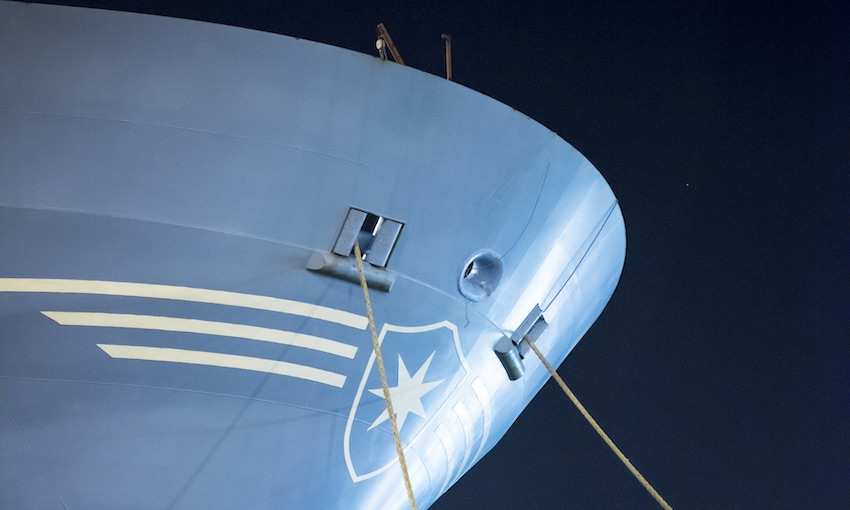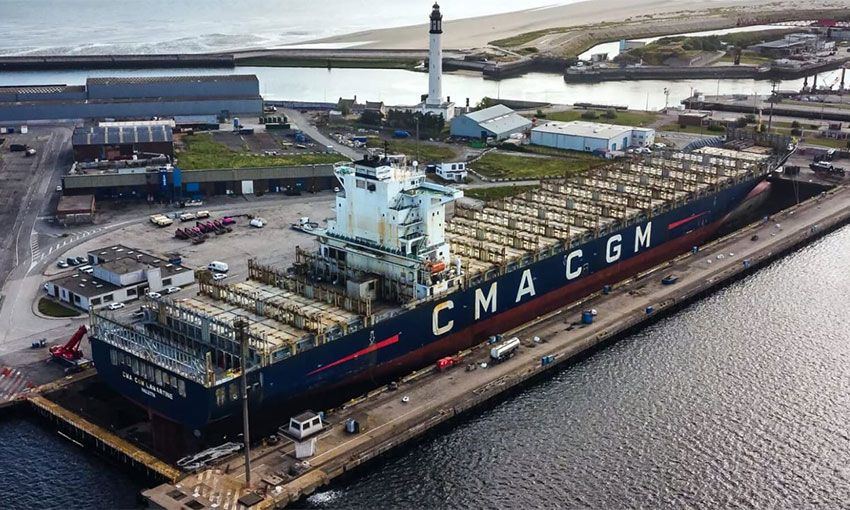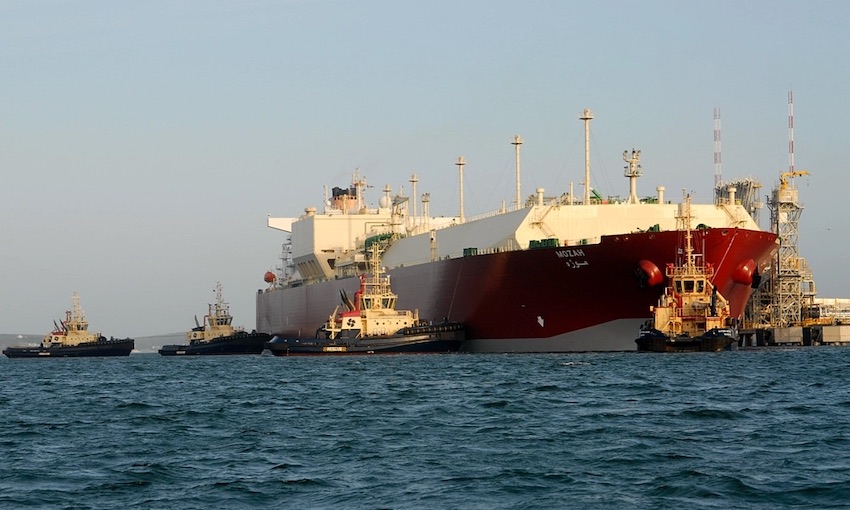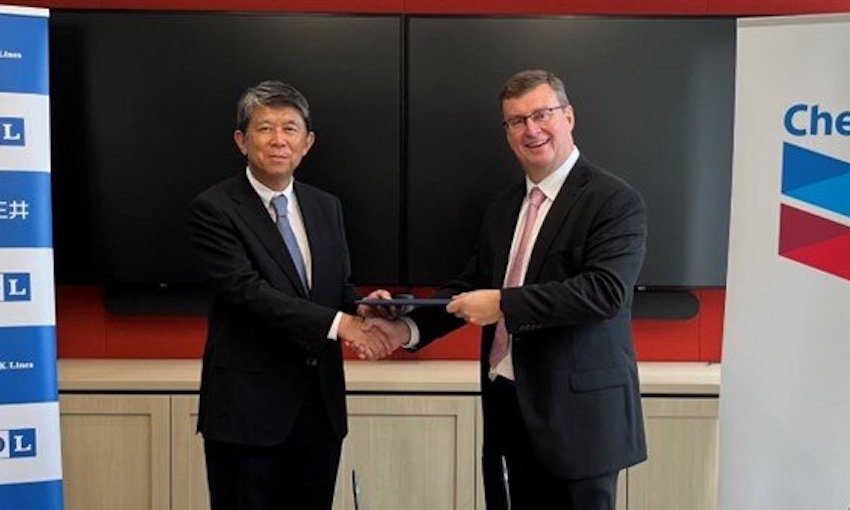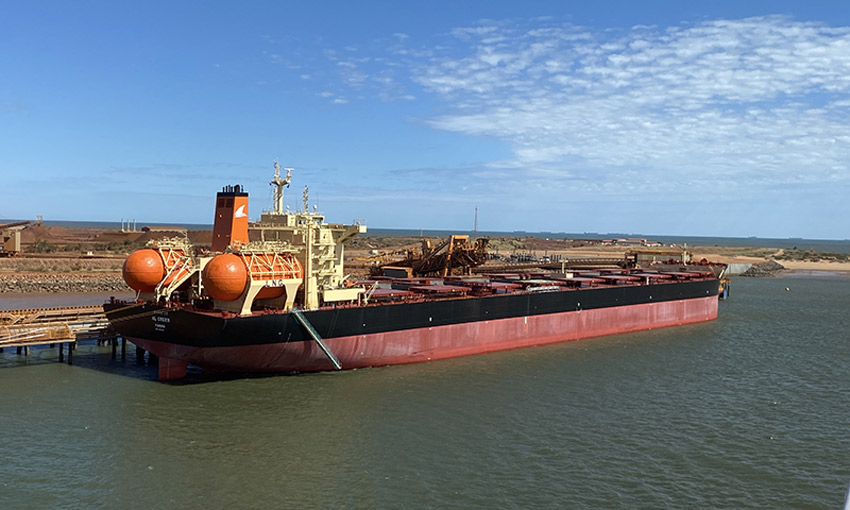IN the first quarter of 2024, shipping line Maersk will introduce the first in a groundbreaking series of eight large ocean-going container vessels capable of being operated on carbon neutral methanol.
The vessels will be built by Hyundai Heavy Industries (HHI) and have a nominal capacity of approx. 16,000 containers (TEU). The agreement with HHI includes an option for four additional vessels in 2025.
The series will replace older vessels, generating annual CO2 emissions savings of around one million tonnes.
“As an industry first, the vessels will offer Maersk customers truly carbon neutral transportation at scale on the high seas,” Maersk said in a statement.
The new vessels come as part of Maersk’s ongoing fleet renewal program and will replace tonnage of more than 150,000 TEU that is reaching end-of-life and leaving the Maersk managed fleet between 2020 and Q1 2024.
Maersk has reiterated its strategy of maintaining a fleet capacity in the 4-4.3 million TEU range, as a combination of Maersk managed and time-chartered vessels.
According to data from Alphaliner, Maersk currently has capacity of 4.22 million TEU, with an orderbook amounting to an additional 174,320 TEU or 24 vessels.
Its nearest competitor MSC, has a current capacity of 4.1 million TEU, however with an orderbook of 917,200 TEU or 51 vessels, it could be poised to topple Maersk’s position as the largest ocean-going carrier.
One of the biggest drivers of Maersk’s decarbonisation effort is the demand from more than half of its 200 largest customers for carbon neutral transport.
Corporate sustainability leaders including Amazon and Unilever among others, have committed to actively use and scale zero carbon solutions for their ocean transport. Many more more are expected to follow, according to Maersk.
The vessels come with a dual fuel engine setup. Additional capital expenditure for the dual fuel capability, which enables operation on methanol as well as conventional low sulphur fuel, will be in the range of 10-15% of the total price.
Soren Skou, CEO, Maersk said, “The time to act is now, if we are to solve shipping’s climate challenge.
“This order proves that carbon neutral solutions are available today across container vessel segments and that Maersk stands committed to the growing number of our customers who look to decarbonise their supply chains.
“Further, this is a firm signal to fuel producers that sizable market demand for the green fuels of the future is emerging at speed.”
Maersk will operate the vessels on carbon neutral e-methanol or sustainable bio-methanol as soon as possible. Sourcing an adequate amount of carbon neutral methanol from day one in service will be challenging, as it requires a significant production ramp up of proper carbon neutral methanol production, for which Maersk continues to engage in partnerships and collaborations with relevant players.
The vessels will be designed to have a flexible operational profile, enabling them to perform efficiently across many trades, and add flexibility regarding customer needs. They will feature a methanol propulsion configuration developed in collaboration with makers including MAN ES, Hyundai (Himsen) and Alfa Laval which represents a significant scale-up of the technology from the previous size limit of around 2000 TEU.
The vessels will be classed by the American Bureau of Shipping and sail under the Danish flag.
Henriette Hallberg Thygesen, CEO, fleet and strategic brands, Maersk said, “We are very excited about this addition to our fleet, which will offer our customers unique access to carbon neutral transport on the high seas while balancing their needs for competitive slot costs and flexible operations.
“To us, this is the ideal large vessel type to enable sustainable, global trade on the high seas in the coming decades and from our dialogue with potential suppliers, we are confident we will manage to source the carbon neutral methanol needed.”

